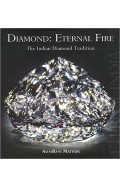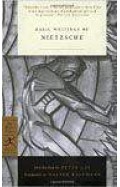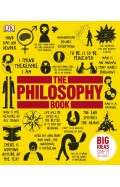- Home
- Books
- Categories
- Non Fiction
- Education and Reference
- Postmodernism: or, the Cultural Logic of Late Capitalism
Postmodernism: or, the Cultural Logic of Late Capitalism
By: Fredric Jameson
-
Rs 6,025.50
- Rs 6,695.00
- 10%
You save Rs 669.50.
Due to constant currency fluctuation, prices are subject to change with or without notice.
In his most wide-ranging and accessible work, Frederic Jameson argues that postmodernism is the cultural response to the latest systemic change in world capitalism. He seeks here to crystallize a definition of a term which has taken on so many meanings that it has virtually lost all historical significance.
He presents an extensive discussion on the cultural landscape-both 'high' and 'low'-of postmodernity, evaluating the political fortunes of the new term and surveying postmodern developments in a range of different fields-from market ideology to architecture, from painting and instalment art to contemporary punk film, from video art and high literature to deconstruction.
Finally, Jameson revaluates the concept of postmodernism in light of postmodern critiques of totalization and historical narratives-from the notion of decadence to the dynamics of small groups, from religious fundamentalism to hi-tech science fiction-while touching on the nature of contemporary cultural critique and the possibilities of cognitive mapping in the present multinational world system.
This provocative book will be fundamental to all future discussions of postmodernism.
In his most wide-ranging and accessible work, Frederic Jameson argues that postmodernism is the cultural response to the latest systemic change in world capitalism. He seeks here to crystallize a definition of a term which has taken on so many meanings that it has virtually lost all historical significance.
He presents an extensive discussion on the cultural landscape-both 'high' and 'low'-of postmodernity, evaluating the political fortunes of the new term and surveying postmodern developments in a range of different fields-from market ideology to architecture, from painting and instalment art to contemporary punk film, from video art and high literature to deconstruction.
Finally, Jameson revaluates the concept of postmodernism in light of postmodern critiques of totalization and historical narratives-from the notion of decadence to the dynamics of small groups, from religious fundamentalism to hi-tech science fiction-while touching on the nature of contemporary cultural critique and the possibilities of cognitive mapping in the present multinational world system.
This provocative book will be fundamental to all future discussions of postmodernism.
Postmodernism: or, the Cultural Logic of Late Capitalism
By: Fredric Jameson
Rs 6,025.50 Rs 6,695.00 Ex Tax :Rs 6,025.50
Zubin Mehta: A Musical Journey (An Authorized Biography)
By: VOID - Bakhtiar K. Dadabhoy
Rs 472.50 Rs 1,050.00 Ex Tax :Rs 472.50
Diamond, Eternal Fire - The Indian Diamond Traditon
By: Asharani Mathur
Rs 299.60 Rs 2,996.00 Ex Tax :Rs 299.60
Fault Lines - Shortlisted for the 2021 Costa First Novel Award
By: Emily Itami
Rs 1,165.50 Rs 2,590.00 Ex Tax :Rs 1,165.50
The Yellow Wallpaper & Herland
By: Charlotte Perkins Gilman
Rs 1,795.50 Rs 1,995.00 Ex Tax :Rs 1,795.50
The Quest For Meaning: Developing A Philosophy Of Pluralism
By: Tariq Ramadan
Rs 1,255.50 Rs 1,395.00 Ex Tax :Rs 1,255.50
The Basic Writings of Nietzsche
By: Peter Gay/Sigmund Freud
Rs 3,775.50 Rs 4,195.00 Ex Tax :Rs 3,775.50
Diamond, Eternal Fire - The Indian Diamond Traditon
By: Asharani Mathur
Rs 299.60 Rs 2,996.00 Ex Tax :Rs 299.60
Fault Lines - Shortlisted for the 2021 Costa First Novel Award
By: Emily Itami
Rs 1,165.50 Rs 2,590.00 Ex Tax :Rs 1,165.50
The Yellow Wallpaper & Herland
By: Charlotte Perkins Gilman
Rs 1,795.50 Rs 1,995.00 Ex Tax :Rs 1,795.50
No recently viewed books available at the moment.
Zubin Mehta: A Musical Journey (An Authorized Biography)
By: VOID - Bakhtiar K. Dadabhoy
Rs 472.50 Rs 1,050.00 Ex Tax :Rs 472.50
Postmodernism: or, the Cultural Logic of Late Capitalism
By: Fredric Jameson
Rs 6,025.50 Rs 6,695.00 Ex Tax :Rs 6,025.50
Diamond, Eternal Fire - The Indian Diamond Traditon
By: Asharani Mathur
Rs 299.60 Rs 2,996.00 Ex Tax :Rs 299.60
Fault Lines - Shortlisted for the 2021 Costa First Novel Award
By: Emily Itami
Rs 1,165.50 Rs 2,590.00 Ex Tax :Rs 1,165.50
The Yellow Wallpaper & Herland
By: Charlotte Perkins Gilman
Rs 1,795.50 Rs 1,995.00 Ex Tax :Rs 1,795.50












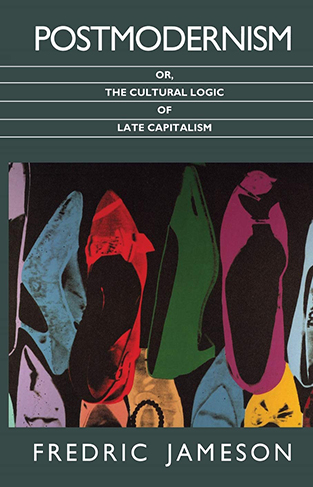
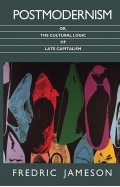
-120x187.jpg?q6)





